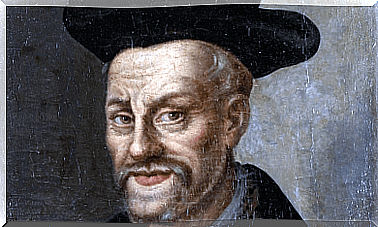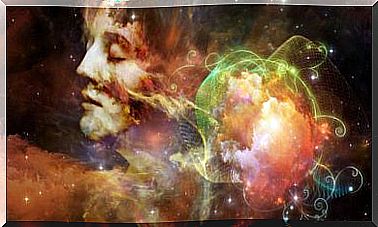The Myth Of Charon, Ferryman From The Underworld
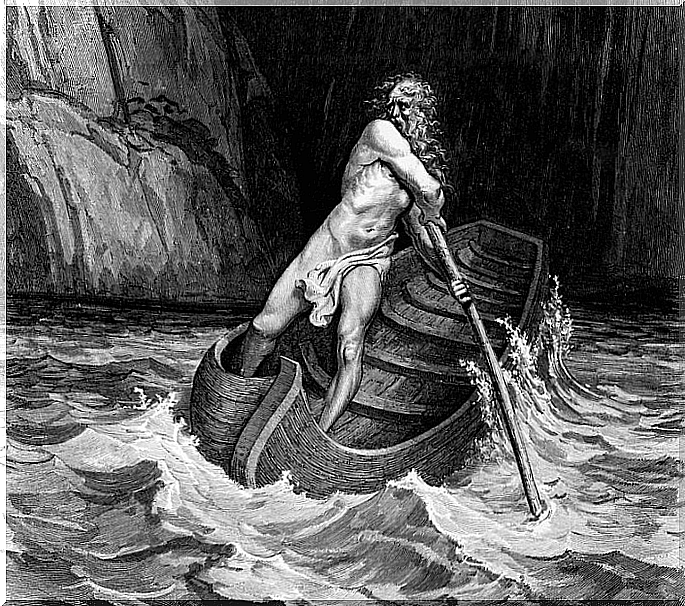
The myth of Charon tells us about one of the most enigmatic characters in Greek mythology. He was the ferryman from the underworld and his mission was to transport the souls of those who had recently died to Hades, where they would dwell for all eternity.
This character is described as a ragged and unkempt old man with a tangled white beard. His face was grim, dirty, gloomy, and his character sour. The myth of Charon tells that he made his boat advance with the help of a pole, that he hoisted the sails and that his ship was always rusty and dilapidated.
Charon was making his journey down the river Acheron, which means ‘river of pain’. His work was endless and routine, so his character was surly. The only thing that took him out of his infinite routine were the exceptional situations in which a living wanted to enter the underworld, as happened with Hercules and Orpheus. Otherwise his activity was an eternal repetition of the same thing.
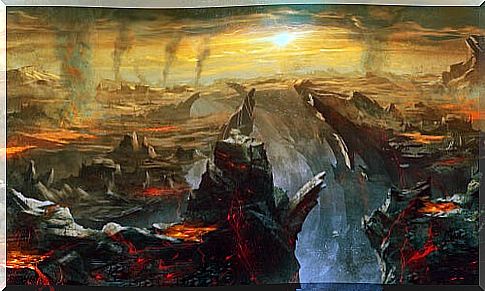
The origin of the myth of Charon
The myth of Charon says that the ferryman from the underworld was the son of Nix and Erebus and that he was born in such an ancient time that there was no possible memory to remember him. Nix was the goddess of the night and was endowed with such overwhelming beauty that even Zeus feared her. She was the daughter of Chaos and had been present in the very creation of the universe.
Erebus, for his part, was the god of darkness and shadows. He reigned over the deep mists that surrounded the confines of the Earth and made a presence in all subterranean places. He was the brother of Nix and with her he conceived two children: Ether, the brightness and luminosity, and Hemera, the day.
According to the myth of Charon, Nix managed to conceive other children herself, without the intervention of her brother and husband Erebus. That was how he had the boatman’s brothers, who were: Moros, Destiny; Ker, the Bane; Thanatos, Death; Hypnos, the Dream; Geras, the Old Age; Ezis, the Pain; Apate, the Deception; Nemesis, the Punishment deserved; Eris, the Discord; Filotes, the Tenderness; Momo, the Taunt; the Hesperides, Daughters of the Evening; the Oniros, the Dreams; the Keres, the spirits of destruction and death; and the Moiras or Fates, Fatality.
Charon the boatman
The myth of Charon tells that the name of this character literally means ‘intense shine’. It is said that people, just a second before dying, show a particular glow in their eyes. This is what the name of the ferryman alludes to, which has also been translated as “the one with the fierce gaze” or “the one with the look of fire.”
It is said that those who called him to fulfill his duty were the Moiras, his sisters, who invoked him with furious impatience when someone was about to die. It was then that Charon reached the shore where he waited for the souls of the recently departed, but not all of them could cross the river of pain, or Acheron, with him. The souls had to pay the passage with a coin.
That was the reason why the Greeks buried their dead with a coin under their tongue: it was the payment that they had to give the ferryman to take them to Hades. If the dead did not carry that coin, or if they had been buried in an improper way, they had to remain wandering around the river for a hundred years. After that time, Charon allowed them to cross without payment.
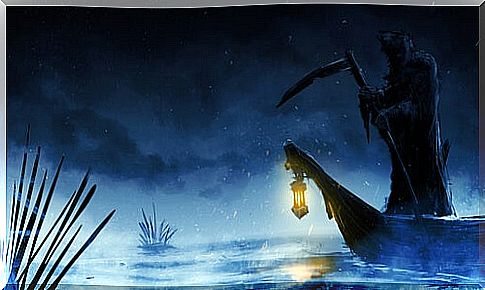
Charon and Hades
The myth of Charon tells that only two characters managed to make the trip to Hades without dying in the attempt. One of them was Hercules, whom Charon transported to the underworld, without knowing very well why and without having asked for any payment. For that reason the gods punished him and he had to spend a year in jail.
The other mortal who was able to cross was Orpheus, who managed to enchant him with the magic of his music and bend the will of the ferryman. Charon also allowed the goddess Psyche, who represented the soul, to pass by due to the tricks that this deity used to confuse him.
Although the place where Charon stayed was the river Acheron, he also had the right to navigate other rivers of the underworld such as Cocytus, the river of laments ; Phlegeton, the river of fire; Lete, the river of oblivion; and Styx, the river of hatred.

